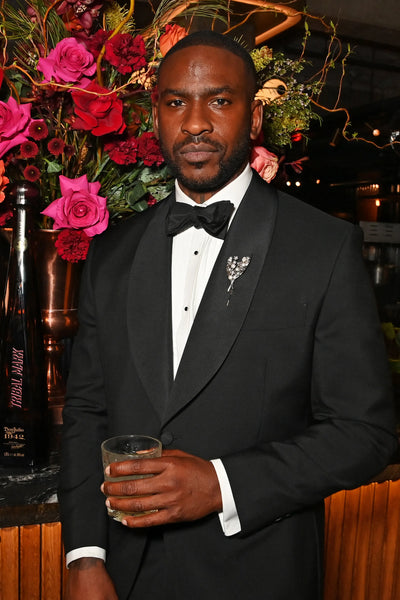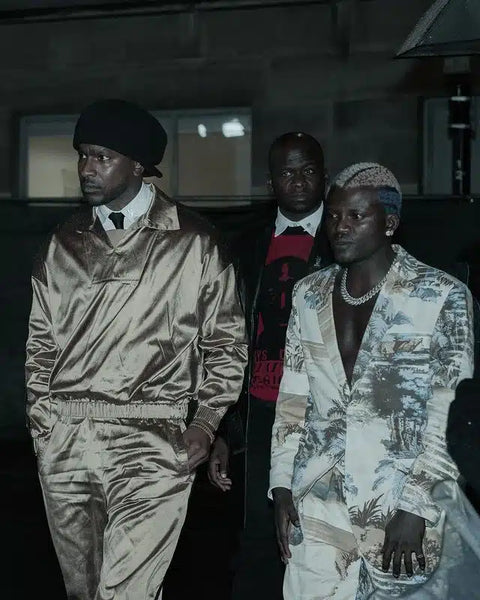Ahead of the midnight release of Skepta’s Tony Montana featuring Portable, and after seeing the preview on Skepta's Instagram, I was inspired to write this short piece which focuses on how Skepta has been a pivotal figure in authentically and effortlessly bridging the gap between UK black youth culture and Motherland Nigeria.
Skepta, born Joseph Olaitan Adenuga Jr., is a British grime MC, rapper, record producer, and DJ. Along with his younger brother Jme, he briefly joined Roll Deep before becoming founding members of Boy Better Know in 2005. The idea of a collaboration between a major UK artist like Skepta and someone from Nigeria would have been unimaginable a few years ago.
Of course, in recent years, there has been an unprecedented increase in collaborations between Afrobeats artists and UK grime artists, rock bands, pop artists, and other global artists from various parts of the world. However, before this became a popular and easily achievable feat, Skepta played a crucial role. He not only influenced the musical tastes of UK black youths towards Africa but did so authentically. Grime has evolved from an underground scene to mainstream success, with artists becoming multimillionaires, chart-toppers, and headliners at major festivals across Europe.
This shift has impacted youth culture, encouraging a stronger connection to their African heritage, especially when driven by one of the top MCs whose voice and influence are significant.
Skepta's previous collaborations with Afrobeats powerhouses, such as Wizkid, have been highly successful on both sides of the Atlantic, in Nigeria and Great Britain. The music video shot in Lagos, Nigeria, and his lyrics on these records often explore his identity and culture, emphasising his African roots.
While collaborations can also be facilitated by record labels seeking to capitalise on the rise of Afrobeats, the music industry's elitism often leads to artists being snubbed based on their tier, class, and influence. This contrasts with the collaboration between Skepta and Portable, differing in class, tier, audience, and brand. It seems Skepta's motivation goes beyond financial gain, aiming for a legacy that connects black youths with their African heritage directly.
Habeeb Okikiola, known as Portable or Dr. Zeh, is a Nigerian singer, rapper, and songwriter known for his controversial behaviour and reactions. Despite this, his talent is undeniable, with a significant following in Nigeria who enjoy his erratic and humorous antics on social media.
Skepta and Portable share commonalities, not just in their roots from Ogun State, Nigeria, but in their experiences of hardship. Portable's upbringing was negatively affected by societal neglect, while Skepta grew up in a tough area in North London, facing challenges with gangs, guns, and the law. Portable's breakthrough came in December 2021 with the hit song Zazu Zeh, featuring Olamide and Poco Lee.
Skepta's ongoing projects, including a new studio album, his fashion label Mains, and the Big Smoke Festival, reflect his focus on legacy. His short film "Tribal Mark," with a predominantly ethnic minority cast and crew, explores the immigrant experience in London.
A lead record off this album, Jangorova, featuring Idris Elba and the hottest Nigerian rapper Odumodublvck, choruses 'Epo moto Jangrova' and shoots back to the past, heavily rooted in Nigerian childhood when kids play with repurposed abandoned tyres at home after school or during school playtimes.
This rhythm, still present in modern-day Nigeria and heavily associated with kids growing up in the toughest neighbourhoods, has traversed generations, finding resonance in British mainstream black culture.
The film's incorporation of Skepta's music, such as the new song Gas Me Up (Diligent) from his upcoming album Knife and Fork, and the collaboration with Portable on Tony Montana, highlights Skepta's efforts to bridge cultures, instil pride, and emphasise the importance of African heritage in the lives of black youths, whether in Europe or Africa.




